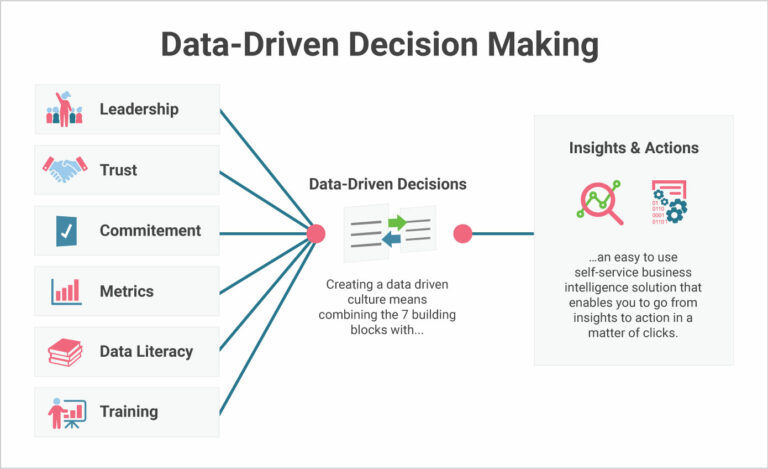In today’s fast-paced and competitive business landscape, organizations are constantly seeking ways to gain a competitive edge and make informed decisions. One key strategy that has gained significant attention in recent years is the implementation of business intelligence (BI) platforms. These platforms have revolutionized the way businesses analyze and utilize data, enabling them to make data-driven decisions that drive growth, improve efficiency, and increase profitability.

What is a Business Intelligence Platform?
A business intelligence platform is a comprehensive software solution that enables organizations to collect, analyze, and visualize data from various sources, providing a unified view of the business. These platforms typically consist of a range of tools and features, including data warehousing, data mining, reporting, and analytics, as well as data visualization and dashboarding capabilities.
Key Features of a Business Intelligence Platform
A robust business intelligence platform typically includes the following key features:
- Data Integration: The ability to connect to various data sources, including databases, spreadsheets, and cloud-based applications.
- Data Warehousing: A centralized repository that stores and manages large amounts of data, making it easier to access and analyze.
- Data Analytics: Advanced analytics capabilities, including predictive analytics, statistical analysis, and data mining.
- Data Visualization: Interactive and dynamic dashboards and reports that enable users to visualize data and gain insights.
- Reporting: Automated reporting capabilities that enable users to generate reports and distribute them to stakeholders.
- Security and Governance: Robust security and governance features that ensure data integrity, compliance, and access control.
Benefits of a Business Intelligence Platform
The implementation of a business intelligence platform can bring numerous benefits to an organization, including:
- Improved Decision Making: By providing a unified view of the business, BI platforms enable decision-makers to make informed, data-driven decisions.
- Increased Efficiency: Automated reporting and analytics capabilities reduce manual effort and increase productivity.
- Enhanced Visibility: Real-time dashboards and reports provide stakeholders with up-to-date information, enabling them to respond quickly to changing business conditions.
- Better Customer Insights: Advanced analytics capabilities enable organizations to gain a deeper understanding of customer behavior and preferences.
- Competitive Advantage: By leveraging data and analytics, organizations can identify new opportunities, optimize operations, and stay ahead of the competition.
Real-World Examples of Business Intelligence Platforms
Several organizations have successfully implemented business intelligence platforms to drive business success. For example:
- Walmart: The retail giant uses a BI platform to analyze customer data and optimize its supply chain operations.
- Amazon: The e-commerce leader leverages BI to analyze customer behavior and personalize recommendations.
- Coca-Cola: The beverage company uses BI to analyze sales data and optimize its distribution network.
Implementing a Business Intelligence Platform
Implementing a business intelligence platform requires careful planning, execution, and ongoing maintenance. The following steps are essential for a successful implementation:
- Define Business Requirements: Identify the organization’s key performance indicators (KPIs) and business requirements.
- Assess Data Infrastructure: Evaluate the organization’s data infrastructure and identify areas for improvement.
- Select a BI Platform: Choose a BI platform that meets the organization’s needs and budget.
- Develop a Roadmap: Create a roadmap for implementation, including timeline, budget, and resource allocation.
- Train and Support Users: Provide training and support to users to ensure successful adoption.
Common Challenges and Solutions
Despite the numerous benefits of business intelligence platforms, organizations may encounter challenges during implementation. Some common challenges and solutions include:
- Data Quality Issues: Implement data governance policies and data validation processes to ensure data accuracy and integrity.
- User Adoption: Provide training and support to users, and ensure that the BI platform is intuitive and user-friendly.
- Technical Complexity: Partner with a vendor or consultant who has expertise in implementing BI platforms.
FAQs
Q: What is the cost of implementing a business intelligence platform?
A: The cost of implementing a BI platform varies depending on the vendor, scope, and complexity of the project.
Q: How long does it take to implement a business intelligence platform?
A: The implementation timeframe varies depending on the scope and complexity of the project, but typically ranges from several weeks to several months.
Q: What are the key benefits of a business intelligence platform?
A: The key benefits of a BI platform include improved decision making, increased efficiency, enhanced visibility, better customer insights, and competitive advantage.
Q: Can a business intelligence platform be customized to meet specific business needs?
A: Yes, most BI platforms can be customized to meet specific business needs, including integration with existing systems and data sources.
Q: What is the role of data governance in a business intelligence platform?
A: Data governance plays a critical role in ensuring data quality, integrity, and compliance, and is essential for a successful BI platform implementation.
Conclusion
In conclusion, business intelligence platforms have revolutionized the way organizations analyze and utilize data, enabling them to make informed, data-driven decisions that drive growth, improve efficiency, and increase profitability. By understanding the key features, benefits, and implementation considerations of a BI platform, organizations can unlock the full potential of their data and gain a competitive edge in the market. With the right BI platform and implementation strategy, organizations can overcome common challenges and achieve success in today’s fast-paced and competitive business landscape. As the business landscape continues to evolve, the importance of business intelligence platforms will only continue to grow, and organizations that invest in these platforms will be well-positioned for success in the years to come.
Closure
Thus, we hope this article has provided valuable insights into The Power of Business Intelligence Platforms: Unlocking Data-Driven Decision Making. We thank you for taking the time to read this article. See you in our next article!